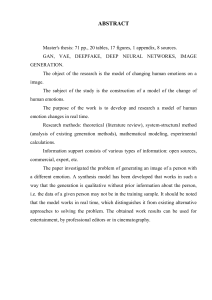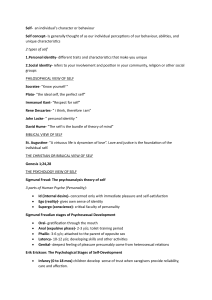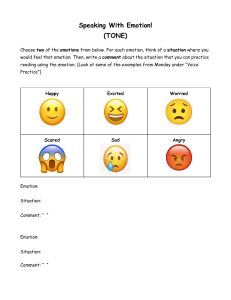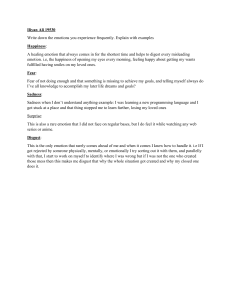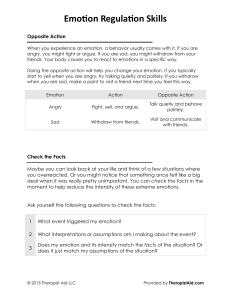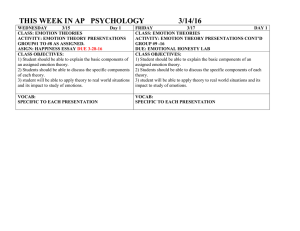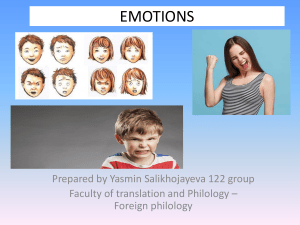Emotional Intelligence
advertisement
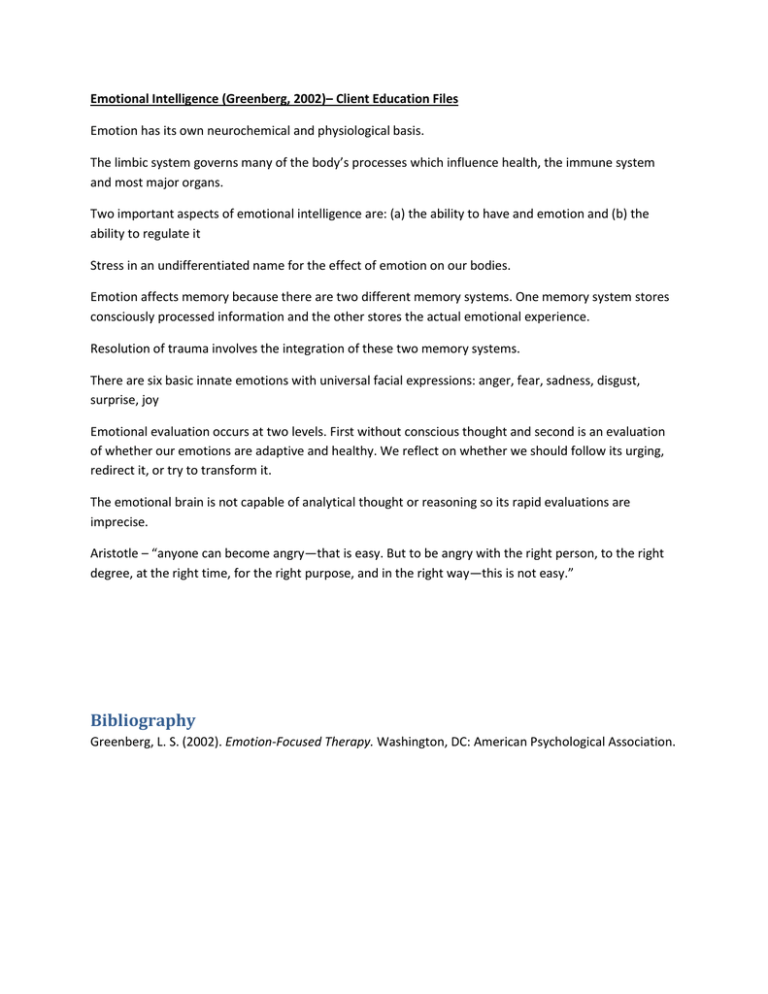
Emotional Intelligence (Greenberg, 2002)– Client Education Files Emotion has its own neurochemical and physiological basis. The limbic system governs many of the body’s processes which influence health, the immune system and most major organs. Two important aspects of emotional intelligence are: (a) the ability to have and emotion and (b) the ability to regulate it Stress in an undifferentiated name for the effect of emotion on our bodies. Emotion affects memory because there are two different memory systems. One memory system stores consciously processed information and the other stores the actual emotional experience. Resolution of trauma involves the integration of these two memory systems. There are six basic innate emotions with universal facial expressions: anger, fear, sadness, disgust, surprise, joy Emotional evaluation occurs at two levels. First without conscious thought and second is an evaluation of whether our emotions are adaptive and healthy. We reflect on whether we should follow its urging, redirect it, or try to transform it. The emotional brain is not capable of analytical thought or reasoning so its rapid evaluations are imprecise. Aristotle – “anyone can become angry—that is easy. But to be angry with the right person, to the right degree, at the right time, for the right purpose, and in the right way—this is not easy.” Bibliography Greenberg, L. S. (2002). Emotion-Focused Therapy. Washington, DC: American Psychological Association.
